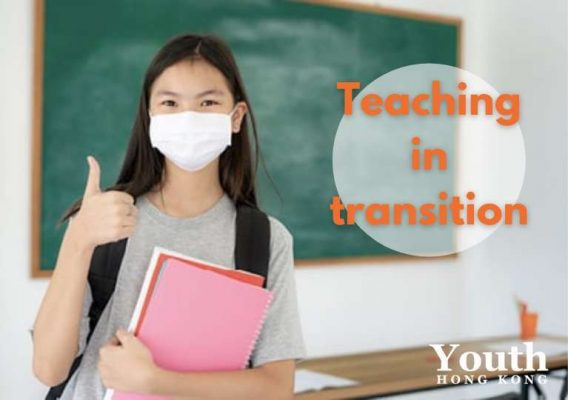//vol.13-3 Insight: primary school
- Even though the teachers are anxious, these pupils aged 8-11 are keen.
- They are all desperate to see their friends and want to get back into class.
- Some are a bit nervous about catching up and feel shy.
- 教育界的當務之急,是幫助學生適應疫情下的學習新常態,對基層學生的支援尤其重要。
- 資源不均、提不起興趣、缺乏父母支持、未能融入社交圈子等,都是基層學生常見的難題。
- 同樣來自小學的梁老師和李老師,均對全面恢復面授課堂感到擔憂。
“When I get back to face-to-face teaching, my very first focus will be the emotional wellness of my students and their parents,” says Ms Li. Most of her pupils are from underprivileged or ethnic minority. families whose cramped living conditions in sub-divided flats easily provoke conflict, especially when noisy siblings compete for scarce devices with poor internet access.
“Resources are so inadequate that not only do the children not have computers at home, despite government policy, they also have no extra tutorials or interest classes outside school, unlike the more affluent children,” she points out. “All they have is the online platform provided by our school which is not enough in Hong Kong where all the emphasis is on good results. I am afraid that the achievement gap will only get larger.”
After a year stuck at home, some children have put on so much weight that they barely fit into their school uniforms,” Ms Li continues. “They get out of breath just climbing stairs so we need to ensure they get more outdoor activities.” She also expects the new arrivals to have shorter concentration spans than older pupils, break the rules and hand in sloppy, if any, homework.
“So,” she says patiently, “we will get in touch with parents and explain the requirements. Discipline teachers and social workers visit if students are regularly absent from online classes. This term, if necessary, we will let them stay in school for individual tutoring in the afternoon and parents can come to the school once a fortnight to hand in homework and pick up new exercises.
The achievement gap will only get wider.
Such logistical problems are exacerbating endemic issues. “My students will leave primary school at the end of this year. I will have to train them for interviews. I also want to arrange for them to enter competitions and take part in performances to broaden their minds and enhance their competitiveness.” Non-Cantonese-speaking pupils have an extra problem. “They have had far less chance to practice their second language than they normally would have at school.” Ms Li fears they will be even less competitive at secondary school and eventually face unemployment. What can be done in the face of so many problems. Ms Li is determined: “Stronger communication and social skills. That’s what they need, plus a sense of wellbeing.”
Schools are conducting half-time classes at the beginning of the 2021/2022 school year and teachers have to film instructional videos while holding classes in real time. Zoom is used for online learning and SEESAW for sending and receiving student homework, dictation and assessments. E-class, WeChat and WhatsApp are used to communicate with parents, both in Hong Kong and mainland China “We send details of the teaching focus, homework format, dictation guidelines and so on, so that they can help their children learn better,” explains Ms Leung, “as well as holding online parent meetings to strengthen communication.”
Ms Leung also fears adaptation problems because her pupils have been away from school for so long. She says it was important to have a little interaction before term began. 「The children adjusted to online classes last year and now they will have to readjust to face-to-face classes. I will try my best to create a relaxed learning atmosphere and give them as little homework as possible at the beginning of school.”
The two schools where Ms Leung and Ms Li work have pupils from both Hong Kong and mainland China. They attend classes together if possible. Otherwise, synchronized real-time online lessons are given to cross-border students. “Socialization is another thing that worries me, because they haven’t been together for a long time and many classmates have made no friends because of distance learning.”
Sometimes, neither parents nor students know how to use the resources they are given.
There is disparity in class discipline and parental support. “Some submit assignments smoothly, attend classes punctually and perform well but others, including some of the non-Chinese speakers and cross-border students learn less effectively, fail to attend class on time and are neither engaged or active in class.”
Ms Leung worries that even close communication with parents can improve the situation only slightly. “Online classes have made students lazy and uncommunicative.” The disobedient ones don’t turn on the cameras on their computers or actively answer questions in online classes. “They failed to take their homework seriously or hand it in on time.” Many cross-border parents have suspended their children’s schooling in Hong Kong and sent them to schools in mainland China.
“Some of our families have up to five children,” Ms Leung explains, “and online classes were usually held in the morning in the last academic year. This made it really difficult for the larger, non-Chinese speaking families at a time when just coping with daily life was hard.” Even though the school went to extra lengths to help them, sometimes neither parents nor students know how to use resources they were given.

In face-to-face classes, teachers can give clearer guidelines and correct mistakes immediately but online, that’s not possible. “We had to prepare lessons and instructions very carefully and try to reestablish contact with students who have now become disengaged.”
As well as helping her pupils to catch up with their education, restoring her students』 confidence and calming their fear of social contact are always at the forefront of Ms Leung’s mind. “I think that more appreciation will give them back the will to learn and more encouragement will dispel wariness.” ![]()


